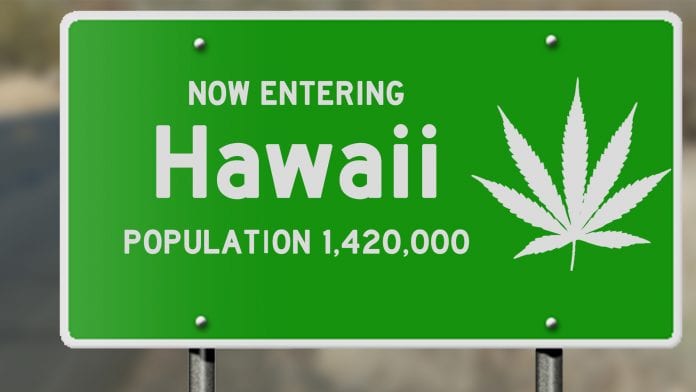
In 2020 Hawaii will be decriminalising cannabis possession for small amounts but citizens will still receive a fine.
A legislature-passed bill will be decriminalising cannabis possession in amounts of three grams or less and sets aside criminal convictions for those who have been charged with possession in the past. Possession, however, will still receive a financial punishment of $130 (~€116.61). Currently, possession of small amounts of cannabis can result in 30 days in jail along with financial punishment of a $1000 fine (~€896.94).
Governor David Ige let the bill enter into law earlier in July after he did not veto it, however, he also did not sign it. As no action was taken before 9 July, the bill will now come into effect on 11 January 2020.
Citizens of the 50th state of the United States, and the most recent to join the union, have already had legalised access to medical cannabis for a couple of years.
Bill HB1383
Bill HB1383 sets out to:
- Decriminalise the possession of three grams or less of cannabis and establish that possession of that amount is a violation punishable by a monetary fine of $130;
- Provide for the expungement of criminal records pertaining solely to the possession of three grams or less of cannabis; and
- Establish a cannabis evaluation task force to make recommendations on changing cannabis use penalties and outcomes in the State.
Decriminalising cannabis possession, not legalising
Legalisation allows the use of a drug for without legal punishment of any kind – for both recreational and medical purposes. However, decriminalisation means that there are still some activities associated with the use of a drug that are illegal.
In this case, where the state is decriminalising cannabis possession – having possession of more than three grams of cannabis for personal, recreational use, as well as selling or growing cannabis for non-medical reason is punishable by law. This means any citizen caught with more than three grams or caught selling the plant in an illegitimate manner will be arrested and could be prosecuted and put in prison.
Two cannabis related bills vetoed
There were two further bills that were vetoed by Governor Ige.
The first was SB1353 – a measure to establish an industrial hemp licensing programme that would require the Department of Agriculture to create an industrial hemp plan to be approved by the United States Department of Agriculture (USDA), as well as making statutory changes such as removing from criminal regulation the cultivation possession or sale of either licensed or unlicensed industrial hemp.
The reason this bill was vetoed was because of concerns regarding the licensing structure – such as not meeting USDA requirements as well as the practical problems that would come along with it relating to the enforcement of exiting medical cannabis laws.
Second, was bill HB290 which was to authorise qualifying out-of-state patients to transport medical cannabis between islands for their personal use. Despite having decriminalised possession of cannabis, according to the government, the bill was vetoed over concerns relating to cannabis, including medical cannabis, remaining illegal under federal law. This is because certain areas of water and airspace fall within the jurisdiction of the federal government and could mean that people wrongly believe they would not be subject to federal prosecution.










